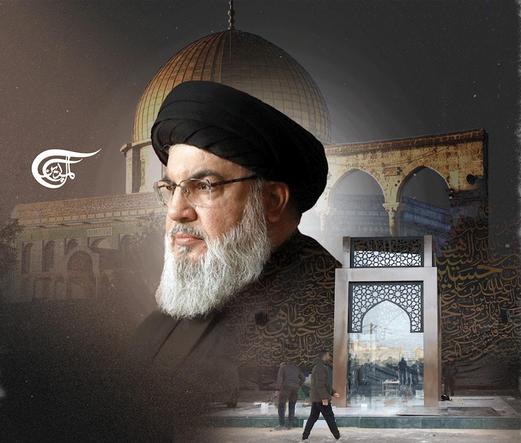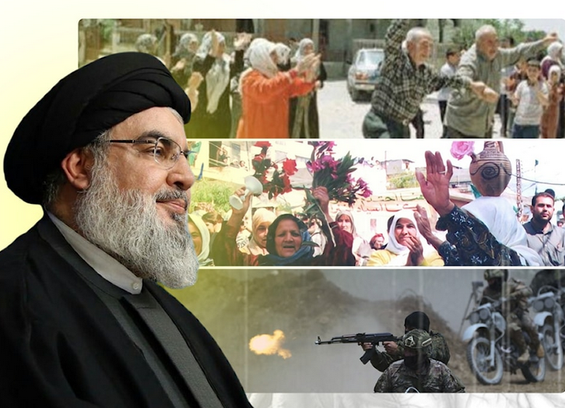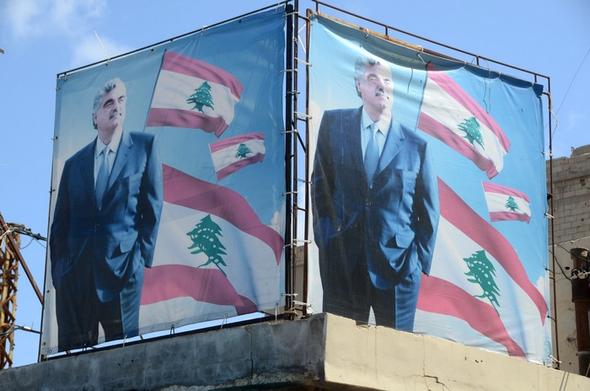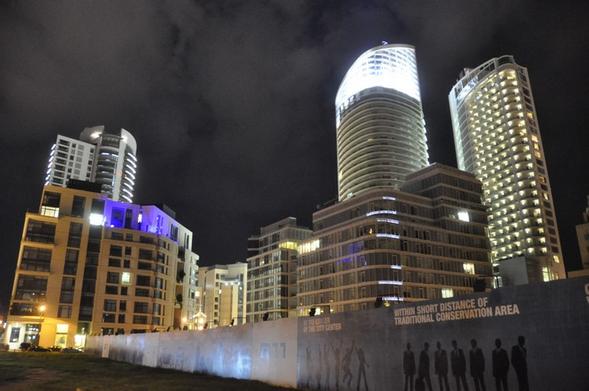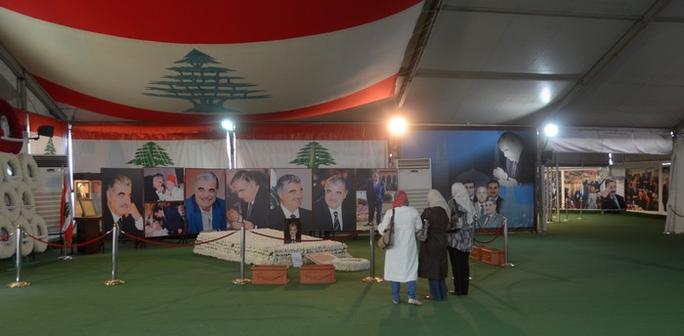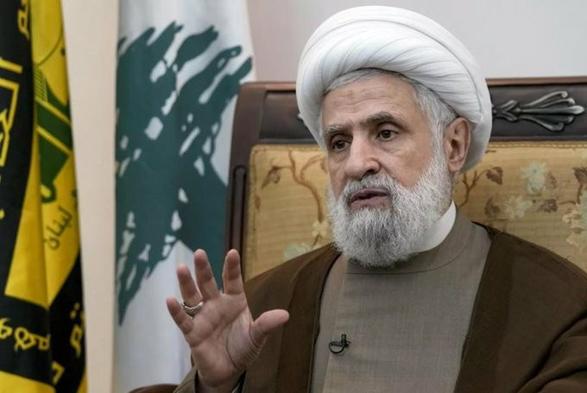Sayyed Hassan Nasrallah died for Gaza
A bottle of soil from Al-Aqsa Mosque was set to be buried with Hezbollah’s late Secretary-General Sayyed Hassan Nasrallah. While nearly the entire world stood by and watched the Zionist entity commit the first live-streamed genocide, the Lebanese leader refused to let the people of Gaza die alone, even if that meant he would be taken with them.
Sayyed Hassan Nasrallah transcended the traditional role of a leader, he represented hope, provided a sense of moral guidance, and offered shrewd political analysis, and when he spoke, everybody listened; whether friend or foe. On the issue of Palestine in particular, he was perhaps the most significant leader in the Arab world, why? Because he was the man who led the first-ever Arab victory over the Zionist regime, expelling them from South Lebanon in 2000, and greatly outwitting them during the 2006 war.
In October of 2023, Sayyed Nasrallah delivered his first speech during the Gaza genocide. In that address, he pledged that the movement he commanded, Hezbollah, would never abandon the people of Gaza, no matter where it took the region. Although he did not commit to war, he set one red line and made a pledge: “Hamas will win!”
In a recent press conference, senior Hamas official Osama Hamdan recounted a conversation between the late Hezbollah Secretary-General and leaders of the Palestinian group, stating that Hamas did not request anything from Sayyed Hassan Nasrallah. Yet, the Hezbollah leader took the decision to immediately open a support front against the Israelis, which began on October 8 when the group fired upon Zionist military positions in the illegally occupied Sheba’a Farms area.
Hezbollah would go on to sacrifice hundreds of its men in thousands of operations targeting Israeli military positions and settlements, all of whom were given the title of martyrs “on the path to al-Quds”. Although his Israeli enemies would go on to commit civilian massacres and assassinations in Beirut and the Bekaa Valley, with war seeming inevitable, Sayyed Nasrallah refused to capitulate.
In a speech 100 days into the Gaza genocide and as the fighting was intensifying on the Lebanese front, he remarked that “we fear nothing and will fight without limits and without borders,” in response to the Zionist regime’s threats. His conditions were always clear, Hezbollah does not stop firing until there is a durable ceasefire in the Gaza Strip.
Throughout his life, he never backed down from supporting the Palestinian cause, providing weapons and expertise to all Palestinian groups, and helping to devise a unified strategy in order to launch a unity of fronts against the Israeli occupation.
Even down to his very last speech – which was delivered right after the Israelis launched their terrorist booby-trapped pager attack on Lebanon that killed and injured thousands, many of whom were civilians – he made the promise that Hezbollah will never abandon Gaza and will fight for the people of Palestine no matter the costs, no matter where the region heads.
Nasrallah also repeatedly imparted wisdom onto the Arab regimes that stood idly by as the atrocities were being carried out against the people of the Gaza Strip, asking them how they could watch and not act. He extended this question to the entire Arab and Muslim World, asking how it was possible for the people to go about their business as usual when Gaza was suffering so horrifically.
He also stressed that if the Arab world did nothing, the Zionist entity would expand its territorial control into their nations and would not stop only at their plan to ethnically cleanse Palestine. Now, as the Arab nations scramble to put together a plan that can offset the proposals of US President Donald Trump to commit a mass ethnic cleansing of Gaza, his words have more relevance than ever before. Indeed, the Zionists now occupy southern Syria, threaten Jordanian sovereignty as Sayyed Nasrallah had warned, and are even making threats against Egypt.
In the end, the main reason that the Zionist entity provided – for their decision to assassinate Sayyed Nasrallah by dropping multiple 2,000-pound bunker-busting munitions that ultimately took down a collection of civilian buildings in southern Beirut – was that he could not be convinced to abandon Gaza.
In 2006, Sayyed Nasrallah’s iconic speech in southern Lebanon – following the war – dedicated perhaps its most powerful segment to the Palestinian people, urging them to continue their path of resistance and stressing that just like the people of Lebanon, they too could achieve their liberation.
A Palestinian woman, who is from Gaza and whose identity will be hidden for security purposes, told me on the day that Sayyed Hassan Nasrallah’s martyrdom was announced:
“His father had a dream, and in that dream, Prophet Muhammed – peace and blessings upon him – told him his son’s name was Hassan. He woke up that morning and told his wife, good morning Um Hassan (mother of Hassan), before he was even born, that’s how he was named. Allah gave us Sayyed Hassan Nasrallah, so he can never be taken away. He told us, he was going to pray at Masjid al-Aqsa… He can’t be gone now, you will see, he’s alive, you will see.”
This is just a sample of what Sayyed Hassan Nasrallah meant to so many Palestinians, some of whom could not even accept his passing and still can’t properly comprehend it. In a world of darkness, death, and confusion, amid the genocide, there were Palestinians who had held back tears upon the announcement that their own friends and family were killed but broke down into tears over Sayyed Nasrallah.
Nasrallah lost his own son – who was martyred in a battle – along with many other members of his extended family, and in the end, he sacrificed his life for the suffering people of Palestine. He may have not been able to pray at Masjid al-Aqsa as he once told interviewers he believed he would, but as was recently announced by Hussein Fadlallah, who heads the committee organizing Sayyed Nasrallah’s funeral, a Jerusalemite managed to send a bottle of soil from Al-Aqsa, which was set to be buried with him.
As for Sayyed Hassan Nasrallah’s pledge that “Hamas will win,” a ceasefire/prisoner exchange was finally declared on January 19, after which the Palestinian political party emerged displaying the signs of victory.
While in the West Hezbollah is described as a “terrorist organisation”, their media and governments fail to comprehend what Sayyed Hassan Nasrallah truly represented to the people who supported him. Sayyed Nasrallah was not just the leader of an armed group, in fact, the support for him had little to do with the military organization he commanded. He was loved and trusted as a symbol of hope, a shining light that with his powerful speeches inspired the people when they most needed it, a symbol of reliability.
Sayyed Nasrallah was also a symbol of pride for a people who had been disposed of, turned into refugees, lost their loved ones, lost their homes, lost all worldly possessions and/or were humiliated physically by their oppressor. The Arab people are treated by the media and governments of the collective West as subhumans, and their lives aren’t afforded worth, they are a people spoken down to as if they are intellectually inferior and incapable of deciding their own destiny. Sayyed Hassan Nasrallah gave the people a reason to feel pride in themselves. As the age-old idiom goes, the pen is mightier than the sword, and so too is the spoken word stronger than any missile.
Robert Inlakesh
Source: Al Mayadeen
https://abolitionmedia.noblogs.org/?p=17234
#alAqsaFlood #hassanNasrallah #hezbollah #palestine #westAsia
